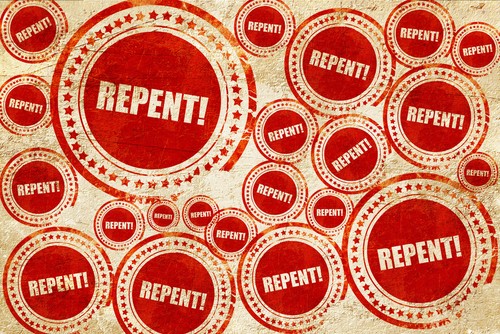Tax amnesty gets ‘religious touch’ to boost participants
Change Size
 Illustration of repentance. (Shutterstock/File)
Illustration of repentance. (Shutterstock/File)
R
epent and you shall be forgiven. This religious saying seems to suit current conditions as the government seeks to offer forgiveness to disobedient taxpayers by joining hands with religious groups.
Last Sunday, the congregation of the Indonesian Christian Church (GKI) Kayu Putih in East Jakarta received a weekly bulletin that greeted them with the now-famous tax amnesty “Declare, Redeem, Relief” slogan.
The slogan encourages reflection on the importance of paying taxes and being honest.
“The reflection contains the writer’s concern for actual issues and what Christianity says about them,” Rev. Nathanael “Adi” Setiadi said by phone on Wednesday.
The reflection was part of the church’s attempt to familiarize its 4,000 members with the government’s program.
It held an information dissemination event the night after the tax amnesty program was passed into law on June 28. The event saw a Finance Ministry official speak on the program and attracted 85 members.
The number of participants is considered quite high for an event held late at night, Adi said.
The church’s board plans to hold another event specifically on tax amnesty procedures.
The tax office admits that several religious groups have held tax amnesty dissemination events to inform the public. These events have helped boost public participation, which is currently below the government’s expectations.
As of Wednesday evening, the amount of declared assets stood at just Rp 471 trillion (US$35.61 billion) or 11.8 percent of the Rp 4 quadrillion target. The amount of redemption or penalty payments is also low at Rp 11 trillion, or 6.6 percent of the target.
Most of the declared assets, or more than 71 percent, come from onshore accounts.
Satria Anggoro, the South Jakarta 1 tax office head, even claimed that around 3,000 members of a pastoral community had visited his office recently to obtain a tax identification number (NPWP), thanks to such a dissemination event.
Meanwhile, the “religious touch” has now expanded to Muhammadiyah, the second-largest Muslim organization in the country.
Finance Minister Sri Mulyani Indrawati, along with high ranking aides, met with the organization’s leaders in a two-and-a-half hour closed-door meeting on Wednesday.
Taxation Director General Ken Dwijugiasteadi and Presidential Chief of Staff Teten Masduki were also seen at the meeting.
Lincolin Arsyad, the chairman of Muhammadiyah’s central committee on higher education, research and development, said they had discussed the program in detail, with the minister explicating the program’s purpose and benefits.
The meeting ended in harmony. “We will work with the Finance Ministry to hold dissemination events, for example, at Muhammadiyah colleges,” Lincolin said, highlighting the organization’s 176 colleges scattered across the country.
He was quick to add, however, that the meeting did not discuss Muhammadiyah’s plan to file a judicial review on the Tax Amnesty Law at the Constitutional Court.
The government has reportedly tried to delay the submission of the judicial review by asking for time to explain the program to Muhammadiyah’s central committee.
When asked about the fate of the submission, Lincolin told journalists “to just wait”.
Despite its earlier oppositional stance, Muhammadiyah proposed in the meeting that the period of tax amnesty be extended to three years from nine months to allow more time for a proper dissemination process. Lincolin said, however, that Sri Mulyani had told them that the law could not be changed.
The tax amnesty was launched in July and will run in several phases until March 2017. The first phase will end on Sept. 30 and carries the highest importance for the government due to the low rates of tax compliance.









